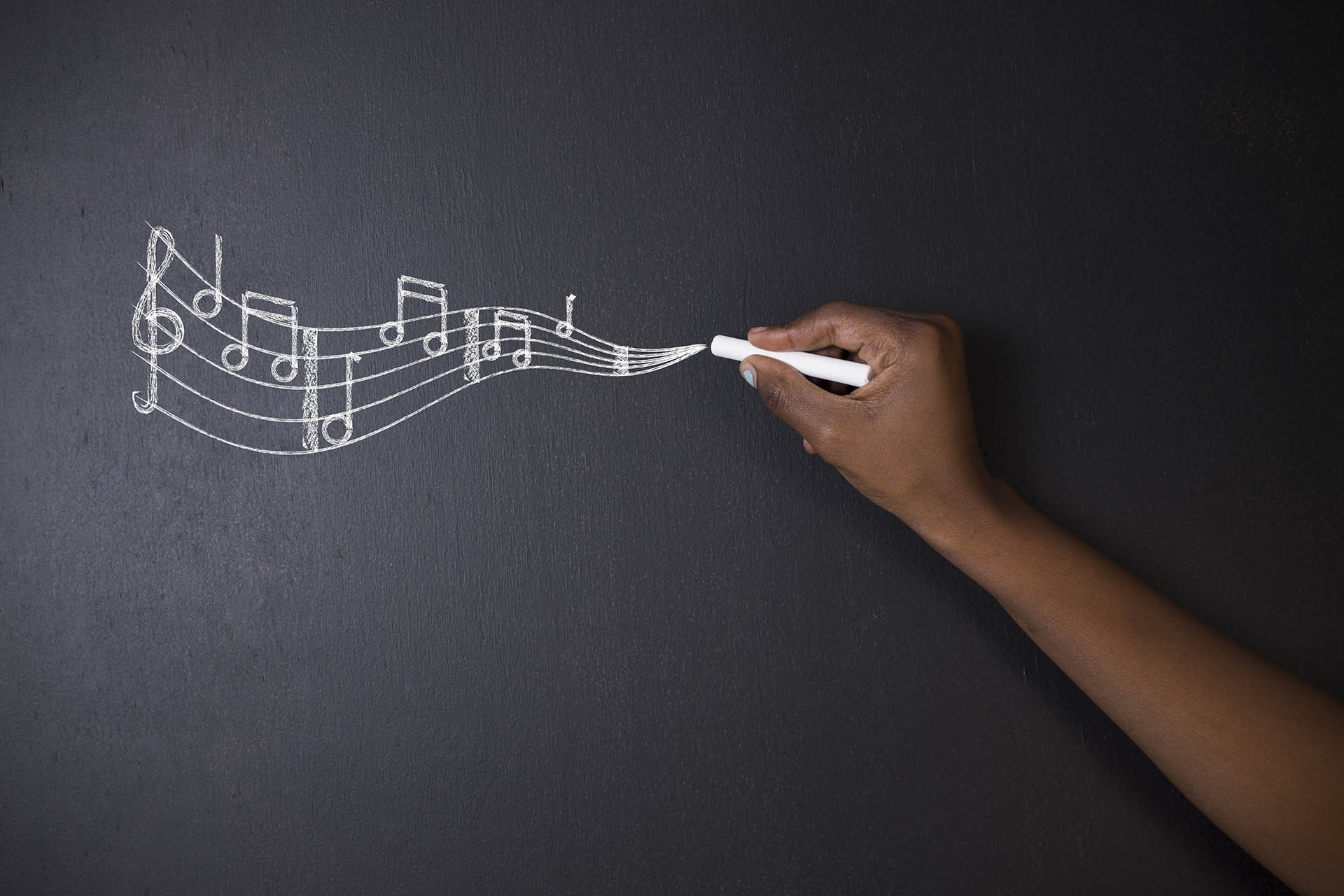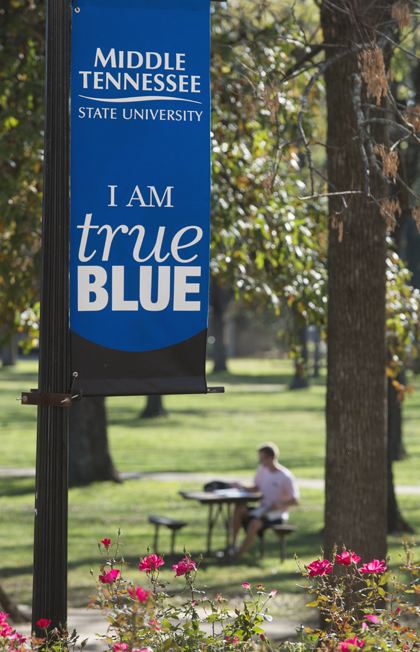
Music
Studying music has a significant impact on creativity, memorization, discipline, and other skills needed to succeed in life.
Music, B.A.
The Bachelor of Arts in Music degree is offered by the College of Liberal Arts at MTSU. The Bachelor of Arts music major provides students with a broad foundation for studying, performing, and communicating about music. The major includes core classes in music theory and history, applied instruction, and ensemble involvement within a Liberal Arts context. Students have a great deal of flexibility in determining their possible minors or may choose to double major in other disciplines. A senior capstone project is presented with direction from a faculty mentor. This may be research-driven, performance related, or a combination of both. Students are encouraged to develop independent work that may combine various disciplines.
The B.A. in Music is an excellent choice for new and transfer students who wish to consider future graduate study. In addition, all prospective new or transfer undergraduate music majors and minors are required to take the Music Theory and Aural Skills Diagnostic Exam to determine appropriate placement in the music theory program. For additional information and to schedule a time for the exam, contact the School of Music Office.
If you live in one of these states: AR GA WV DE; you may be able to attend MTSU at in-state rates under the Academic Common Market program.
News Briefs

Tennessee native honored to be first student enrolled in program
Growing up in nearby Spring Hill, Tennessee, Mark McConathy, knew from a young age that he wanted to pursue music as a career. "I began my musical studies playing the violin for six years, and then switched to the piano in 2015 to pursue studies in composition and music history," he explained. Now as the first student of the Bachelor of Arts in Music program, McConathy said he's honored to be the first student enrolled in the program. "I would encourage students to apply to this program if they are interested in entering the fields of Music History, Theory or who just want to add extra liberal arts electives to their undergraduate coursework."
News Briefs
Tennessee native honored to be first student enrolled in program

Growing up in nearby Spring Hill, Tennessee, Mark McConathy, knew from a young age that he wanted to pursue music as a career. "I began my musical studies playing the violin for six years, and then switched to the piano in 2015 to pursue studies in composition and music history," he explained. Now as the first student of the Bachelor of Arts in Music program, McConathy said he's honored to be the first student enrolled in the program. "I would encourage students to apply to this program if they are interested in entering the fields of Music History, Theory or who just want to add extra liberal arts electives to their undergraduate coursework."
Related Media

The Bachelor of Arts in Music degree allows students to prepare for professional music
careers or graduate study in Music or Liberal Arts. The degree may lead to some ofthe following possible careers:
- Arranger
- Band leader
- College professor
- Composer
- Conductor
- Copyright specialist
- Film music director/editor
- Free-lance performer
- Music critic/journalist
- Music editor and publisher
- Music educator
- Music librarian
- Music software programmer
- Music theater director
- Musicologist
- Orchestra librarian
- Orchestrator
- Private studio teacher
- Recording technician/engineer/mixer
- Songwriter
- Studio musician



Working closely with a faculty mentor, the Bachelor of Arts in Music culminates in a Senior Capstone Project. This may be research driven, performance related, or a combination of both. The student is expected to develop their project through nine-credit hours of emphasis electives. The Capstone will be presented at the end of the senior year.

CONTACT US

Please fill in the form below and we will contact you very soon











